ACTIVE RESEARCH PROGRAMS
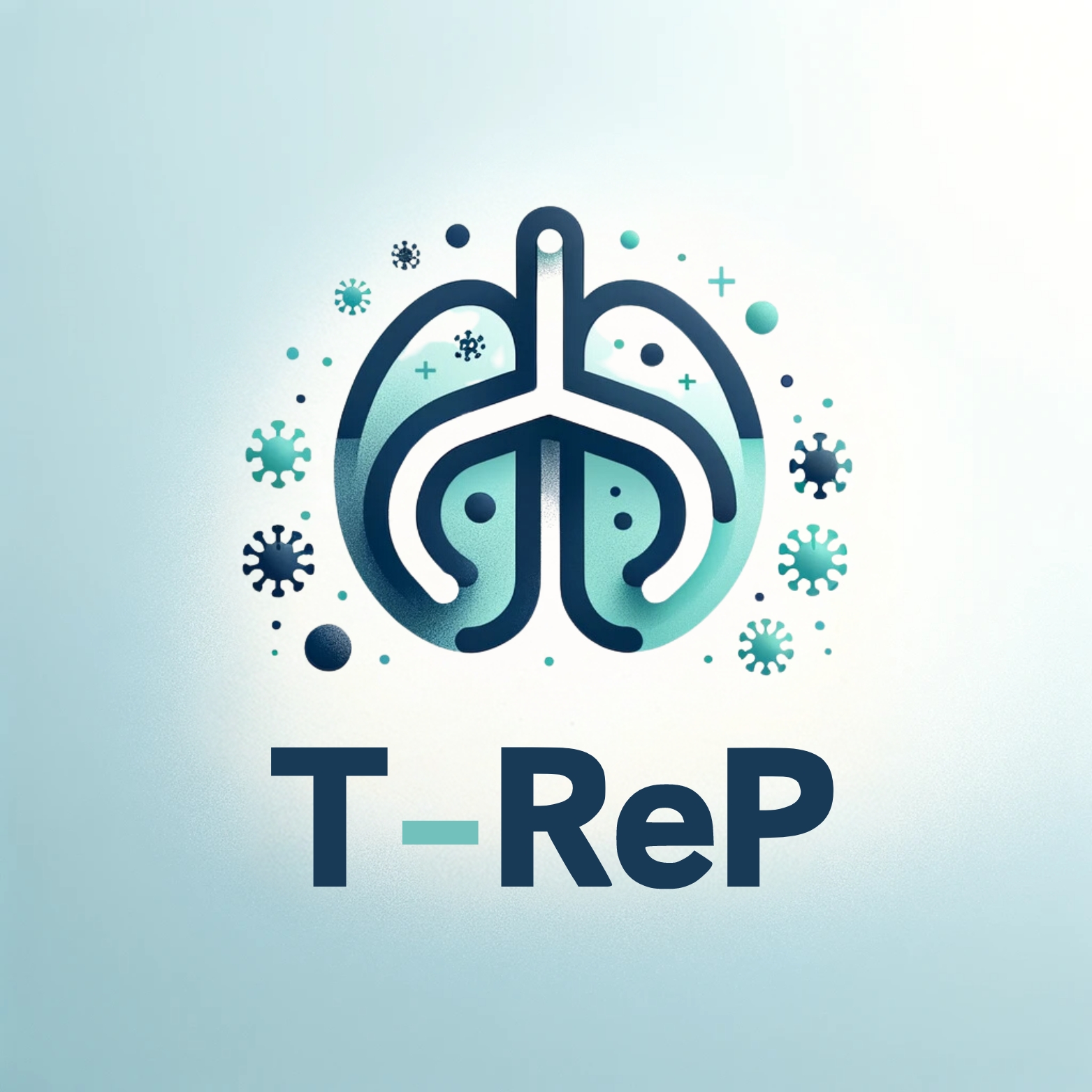
T-Rep
Chronic respiratory diseases, such as asthma, are leading health problems of the 21st century.ου Viral and particularly rhinoviral infections are a major trigger of exacerbations, also promoting airway remodeling and disease persistence. However, the current state-of-the-art suggests that the whole microbiome, rather than a single microorganism, is widely disturbed in asthma, bringing forward the potential of the microbiome as a treatment target. Yet, microbiome studies have largely focused on bacteria. Pioneering the study of the respiratory virome in asthma, we have previously discovered that children with asthma have a characteristically dysbiotic virome that correlates to disease severity and control. A major component of such dysbiosis is bacteriophage deficiency, while eukaryotic viral presence is increased. Recently, we have also identified longitudinal instability, as a key characteristic of airway microbiome dysbiosis in asthma.
To take an important step further, in T-ReP we hypothesize that phage deficiency is present across asthma phenotypes, and that phage-bacteria ecological equilibrium follows predator-prey cycles, which can be shifted by lysogeny. The aim of T-ReP is to quantify phageome variation and phage-bacteria interaction according to phenotype and time, and isolate phages of therapeutic relevance. To achieve this goal, we will (i) describe the characteristics of the respiratory phageome in different asthma phenotypes, (ii) investigate phageome temporal changes in health and asthma, in relation to disease activity, (iii) identify and explore phage-bacterial and phage-viral interaction networks, and (iv) isolate and characterize novel bacteriophages with therapeutic potential in asthma.
This is a highly ambitious, high-risk-high-gain, yet feasible, project. Aspiring to understand mechanisms translatable into a completely new treatment approach, it is likely to have a huge impact towards science and society.
Food all
Food allergenicity is a global phenomenon with increased intensity especially in children population, that is of high interest for the food industry. Literature has highlighted the application of common processing technologies in allergenicity reduction; however, it is a subject that has not been studied extensively.Processing technologies can be applied inducing thermal and structure modifications in a food matrix.
The aim of Football is to:
a) generate new food formulations containing different concentrations of tree-nuts (pistachio and walnut),
b) evaluate the changes in allergenicity that the extrusion process may induce on nut-containing foods and
c) generate a novel methodology able to assess de-novo allergenicity (potential for breaking of tolerance and type-2 sensitization), in different foods.
For this purpose, the optimization of extrusion will be performed in terms of temperature, torque, and shearing about the overall quality (physicochemical and sensory properties) in the final product.
Biochemical characterization of extrudates will be performed by means of SDS-PAGE according to the method of Laemmeli and the allergenicity of the processed tree-nuts preparations will be assessed in well-characterized subjects with IgE-sensitization, with or without clinical allergy, and healthy controls. Finally, models for allergenicity assessment will be formed including physical processing and intestinal luminal conditions.

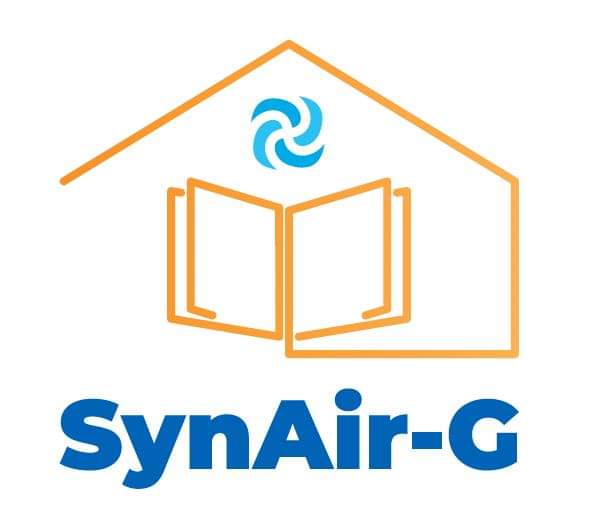
SynAir-G
Disrupting Noxious Synergies of Indoor Air Pollutants and their Impact in Childhood Health and Wellbeing, using Advanced Intelligent Multisensing and Green Interventions
The proposed SynAir-G study aims to accurately and technologically determine the composition of the air in the environment of school classrooms in different schools in Athens (public and private) and from different areas (to ensure representation). At the same time the study will be carried out in different centers abroad (France, United Kingdom, Finland, Georgia).
The study has been submitted and approved under the Horizon Europe Programme of the European Union. The results of this important multicentre study (11 collaborating Universities, 10 clinical centres across Europe that will closely follow primary school students for a period of 2 years, with the Allergy and Clinical Immunology Unit of the Children's Hospital "P&A Kyriakou" Children's Hospital as the coordinator, is expected to play a leading role in the development of guidelines on ensuring a healthy environment in schools for better current and future health of children, as expected by the objectives of the programme according to the European Union.
PAST RESEARCH PROGRAMS
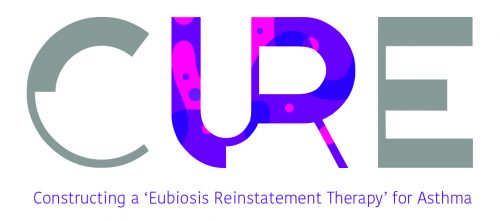
CURE PROGRAM
The CURE programme, which is coordinated by Professor Nikolaos Papadopoulos from the 2nd Pediatric Clinic of EKPA, belongs to the H2020-FET programmes for innovative ideas. CURE : "Constructing a 'Eubiosis Reinstatement Therapy' for Asthma" has as its main objective the use of bacteriophage (phage) therapy to restore microbial balance in asthma.
Recent studies show that the microbial load in asthma is typically unbalanced, a condition called asthma dysbiosis. It appears that a feature of dysbiosis in asthma is the reduced abundance of bacteriophages (phages), which have recently appeared in the literature as a means against infections. However, no one to date has used them as a counterbalancing mediator of dysbiosis.
iClock
Studies of asthma and rhinitis pathogenesis demonstrate pathways leading to Th2-mediated allergic inflammation at the level of allergic sensitization and exposure. It therefore appears that in neonatal life Th2 responses dominate and through a normal process of immune maturation, by school age Th1 responses predominate. However, under the influence of viral infections or other environmental factors and genetic predisposition, Th2-mediated allergic responses persist and in some cases manifest in later life as asthma and rhinitis. The time frames within which these changes (Th2 to Th1 mediated immune responses) occur in healthy, but not in atopic individuals, have not been fully defined.
More info:

PAT
Allergy-related respiratory diseases, such as asthma and rhinitis, which coexist with the term respiratory allergy, constitute a major and growing public health problem in Greece and worldwide. Today, 70 million European citizens suffer from chronic asthma and 100 million from allergic rhinitis. Among them, a significant proportion suffer from a severe form of allergic disease, which affects their productivity and quality of life. These numbers are expected to increase in the coming decades, establishing respiratory allergy as a pandemic. It is estimated that the cost of rhinitis in Europe amounts to more than EUR 100 billion per year.
The main objectives of the respective treatment are to monitor and control symptoms, manage them and try to prevent future exacerbations. At the same time, an aetiological link with allergens is sought, so that specific desensitization therapy can be followed.

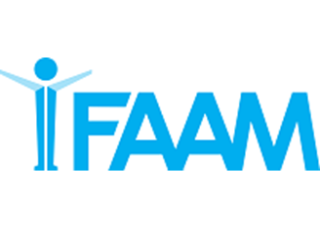
iFAAM PROGRAM
The Study iFAAM (Integrated Approaches to Food Allergen and Allergy Risk Management) refers to integrated approaches to food allergies and allergy risk management. iFAAM is a European project, funded by the European Union (EU FP7), involving 38 collaborating centers from 15 countries in Europe, the United States of America and Turkey.

HabEat PROGRAM
Many eating habits are developed early in childhood, when the child has not yet developed the capacity for conscious choice. These habits are influenced by the environment and possibly by the particular sensory factors of each child.

FAST PROGRAM
Refers to the process of specialized treatment of food allergy.
Food allergy occurs in about 1-2% of adults and 4-8% of children in Europe. Classical immunotherapy for food allergy, although effective, is particularly dangerous due to the high rate of severe anaphylactic reactions. The only treatment available is to avoid eating the food responsible, but this is often difficult in practice and also deprives the patient of foods of high nutritional value, such as fruit and fish.

Predicta Program
Allergy today is a public health problem of pandemic proportions. Taking into account epidemiological data, the European Academy of Allergy and and Clinical Immunology (EAACI) predicts that in less than 15 years more than half of the European population will suffer from some form of allergy. Allergic patients not only suffer from a debilitating disease, with a significant impact on their quality as well as lifestyle choices, but also represent a major problem for health economics due to millions of days of lost productivity and absence from work for adults or from school for children.
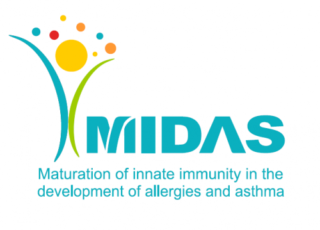
MiDas Program
It refers to the process of maturation of non-specific immunity, i.e. the influence of infections and their role in the development of atopy and asthma.
In Greece, more than 1,000,000 people suffer from allergic rhinitis and asthma and most of them are children. Viral infections are a major predisposing factor for the development of asthma and rhinitis. At birth the immune system of the newborn is immature and differs from that of the adult. The maturation process is gradual and largely dependent on exposure to various environmental factors such as viruses and bacteria.



